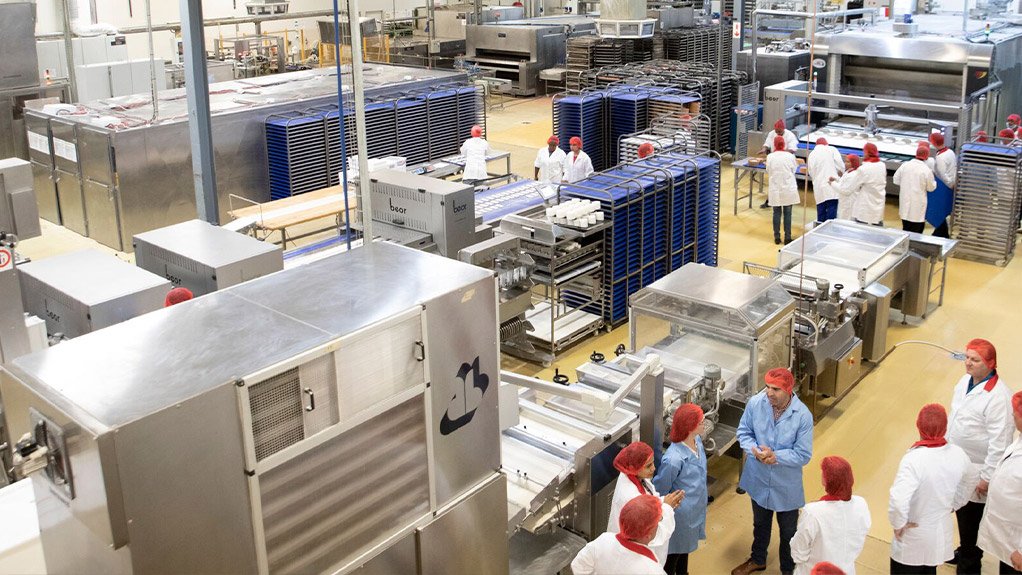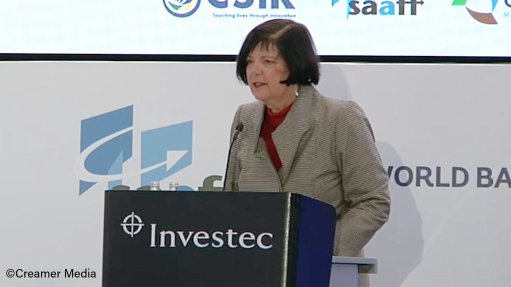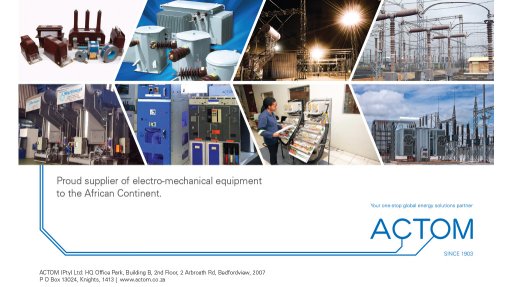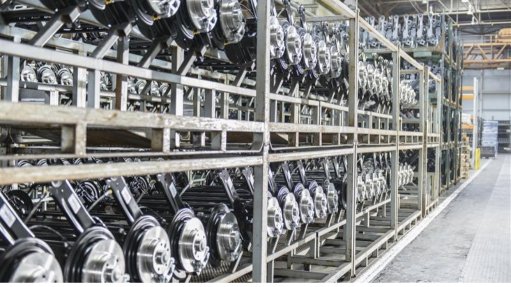Diesel refund does not cover all of the food value chain – FASA
Industry organisation the Franchise Association of South Africa (Fasa) is concerned that giving relief to only one section of the food chain, namely food manufacturers, is unfair to retailers, transport businesses, quick service restaurants and restaurants that rely on diesel to ensure food safety for consumers, who are also impacted by loadshedding.
“While it is important that food manufacturers get relief at the source of food manufacturing, what about the rest of the food chain, from the refrigerated trucks that transport the food to retailer to the food retailers who make sure to keep that food fresh and safe for human consumption?” says Fasa CEO Fred Makgato.
With effect from April 1, manufacturers of foodstuffs, excluding beverages and ingredients used to produce beverages and certain other foodstuffs, may claim back a prescribed portion of the Road Accident Fund (RAF) levy of the price paid for diesel if the diesel is used in the manufacturing process of the relevant foodstuffs.
The fact that this new regulation applies only to pure manufacturing operations, and not to any premises at which wholesale or retail sales of foodstuffs take place, has been criticised as being too selective and not taking into consideration the rest of the value chain that is also impacted negatively by high fuel prices and loadshedding, he said.
The diesel levy refund is intended to alleviate some pressure off food prices but does not go far enough, says Fasa.
“I hope that the manufacturers factor these rebates into their prices, so they are passed down and if they do, that the next tier, which is the wholesalers and retailers, also pass the lower prices down to the end-user, says Fasa chairperson Maria D’Amico.
“If not, then it defeats the purpose of providing relief to the public where only the first tier, meaning the manufacturers, receive some reprieve,” she adds.
For example, in the last few months of 2022, two of the country’s largest supermarket groups Shoprite and Pick n Pay spent a combined R906-million on diesel for generators at stores, with Woolworths adding another R90-million and taking the total to more than R1-billion.
“Retailers that rely on 24-hour generators have to put in place long-term energy generation plans, and it is costing them dearly,” emphasises Makgato.
The refund will take effect from April 1, with refund payments taking place once the system is developed and it will be in place for two years until March 31, 2025.
The refund, alongside an announcement of no increase in the general fuel levy, is intended to benefit sectors such as agriculture, farming, forestry, fishing and mining sectors. Government started implementing a diesel refund system in 2000 to provide full or partial relief from the general fuel levy and the RAF. A similar refund on the RAF levy for diesel used in the manufacturing process, such as for generators, has been extended to the manufacturers of foodstuffs in light of the electricity crisis.
“It is small businesses that will bear the brunt and be the biggest losers in this if they are also not assisted,” said Fasa former chairperson and OBC Better Butchery CEO Tony Da Fonseca.
“Food retailers are already burdened with unrealistic energy increases, extended blackouts, not only owing to scheduled loadshedding, but also ailing infrastructure and constant cable theft in certain areas. The food retail sector has little choice but to run their generators and to insist on imposing road-related taxes which is an absolute injustice.
“Retailers simply cannot absorb these costs. In a franchise environment where individual owners do not have the benefit of having a group ownership structure, these irregular and unexpected expenses are placing individual retailers under undue stress and destroying the ability of individual franchisees from growing and creating employment,” he said.
Additionally, the wholesale and retail sector employs 20% of the nation’s workforce, and the attitude of government reflects how little understanding it has about what it costs and what is needed to secure the food value chain, he emphasised.
Comments
Press Office
Announcements
What's On
Subscribe to improve your user experience...
Option 1 (equivalent of R125 a month):
Receive a weekly copy of Creamer Media's Engineering News & Mining Weekly magazine
(print copy for those in South Africa and e-magazine for those outside of South Africa)
Receive daily email newsletters
Access to full search results
Access archive of magazine back copies
Access to Projects in Progress
Access to ONE Research Report of your choice in PDF format
Option 2 (equivalent of R375 a month):
All benefits from Option 1
PLUS
Access to Creamer Media's Research Channel Africa for ALL Research Reports, in PDF format, on various industrial and mining sectors
including Electricity; Water; Energy Transition; Hydrogen; Roads, Rail and Ports; Coal; Gold; Platinum; Battery Metals; etc.
Already a subscriber?
Forgotten your password?
Receive weekly copy of Creamer Media's Engineering News & Mining Weekly magazine (print copy for those in South Africa and e-magazine for those outside of South Africa)
➕
Recieve daily email newsletters
➕
Access to full search results
➕
Access archive of magazine back copies
➕
Access to Projects in Progress
➕
Access to ONE Research Report of your choice in PDF format
RESEARCH CHANNEL AFRICA
R4500 (equivalent of R375 a month)
SUBSCRIBEAll benefits from Option 1
➕
Access to Creamer Media's Research Channel Africa for ALL Research Reports on various industrial and mining sectors, in PDF format, including on:
Electricity
➕
Water
➕
Energy Transition
➕
Hydrogen
➕
Roads, Rail and Ports
➕
Coal
➕
Gold
➕
Platinum
➕
Battery Metals
➕
etc.
Receive all benefits from Option 1 or Option 2 delivered to numerous people at your company
➕
Multiple User names and Passwords for simultaneous log-ins
➕
Intranet integration access to all in your organisation





















